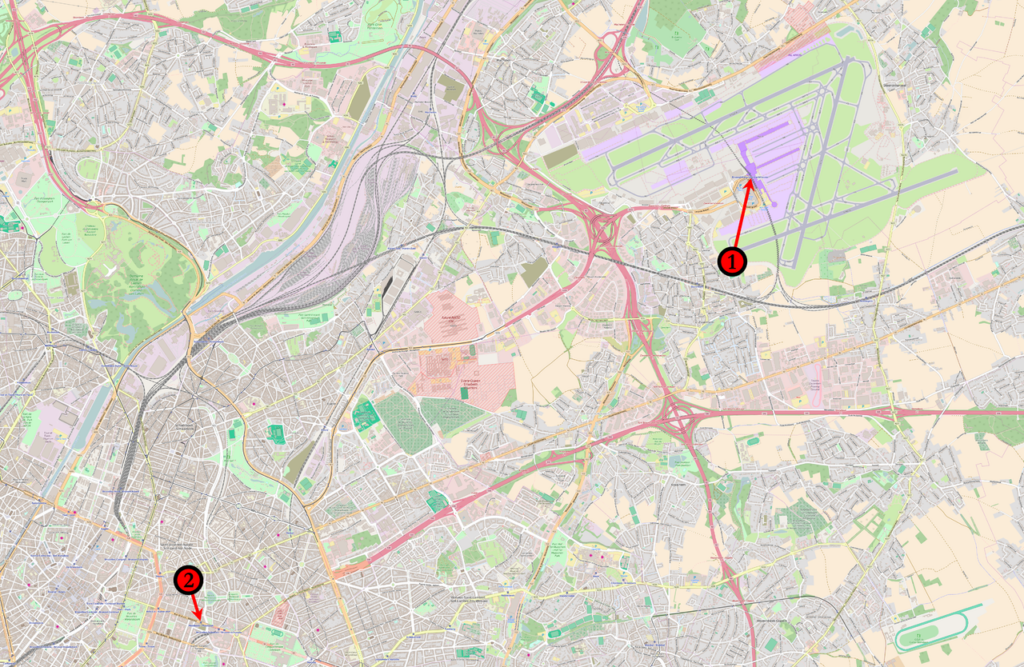Belgium hasn't seen any major terrorist attacks since 2016 and Belgium's Coordination Unit for Threat Analysis (CUTA) rates the actual terror threat as two out of four – far lower than previously.
Yet this is not to say that the threat has disappeared, with one Arabic studies researcher cautioning that terrorist groups are still active in the country: "You always have to assume that there will be people inspired by terror groups," said Pieter Van Ostaeyen of KU Leaven in De Morgen. "The threat level in Belgium remains at two. That means there is always a possibility of new attacks."
Van Ostaeyen manages a database with 2,189 names of Belgian jihadist fighters. But keeping track of the people on file is a complicated affair.
"In that database are 130 Belgian fighters who we don't know whether they are still alive. It could be that they are still in Syria or maybe they have found another terrain in the meantime. In the next few years, more and more Syrian fighters will also return. Those who have been convicted here will also be released and it is difficult to tell whether they have been deradicalised."
Related News
- Around 20 'serious' terrorism threats last year, right-wing extremism continues to rise
- Protesters denounce Belgian-Iranian prisoner-transfer treaty yet again
Van Ostaeyen mentions one man who was part of the Islamic State (IS) and is currently detained in Norway. Until recently, he had spread radical messages online.
"Look also at Jean-Louis Denis (a radical Islamist preacher) who recruited Syria fighters. He was convicted but was released in 2018. He has even admitted that he may now be more radical than ever."
Islamism in 2022
The Taliban reclaimed power in Afghanistan one year ago and the country is once again becoming a hotbed for terrorist groups. Despite the death of al-Qaeda leader Al Zawahiri, the group is still alive, Van Ostaeyen argues.
"When the Taliban took over Afghanistan, al-Qaeda also got an enormous boost", said Van Ostaeyen. On the question of who its next leader will be, he believes that "the most likely candidate is the former Egyptian army colonel Sayf Al Adl. He is already an old hand in al-Qaeda and is even said to have been responsible for raising Hamza bin Laden, Osama's son."
Al-Queda is active in Yemen and Mali, with a growing presence in Somalia and the Indian subcontinent, "but the leadership of the organisation is in Afghanistan."
"Maybe some al-Qaeda fighters will now join IS. Everything depends on who the new leader will be," continued Van Ostaeyen. "If it is a charismatic figure, I think al-Qaeda's influence will grow again."
Belgium: a base for Islamic terrorism in the 2010s
The 2016 bombings highlighted Belgium as a base for Islamic terrorism. Many foreign fighters were radicalised in Belgium before joining wars in the Middle East. In June 2016, 451 fighters joined the Syrian Civil War, making Belgium the country with highest number of foreign fighters per capita.
135 individuals of 12 different nationalities were linked to terrorism, according to a report from the Combating Terrorism Center. Of these, 65% had Belgian citizenship; 33% were either Moroccan citizens or had family from there.
In 2014, the Jewish Museum in Brussels was attacked by an Islamic terrorist, killing four. The November 2015 attacks in Paris were planned in Brussels, while in 2016, Brussels's Maelbeek metro and Zaventem airport were attacked, killing 35.

